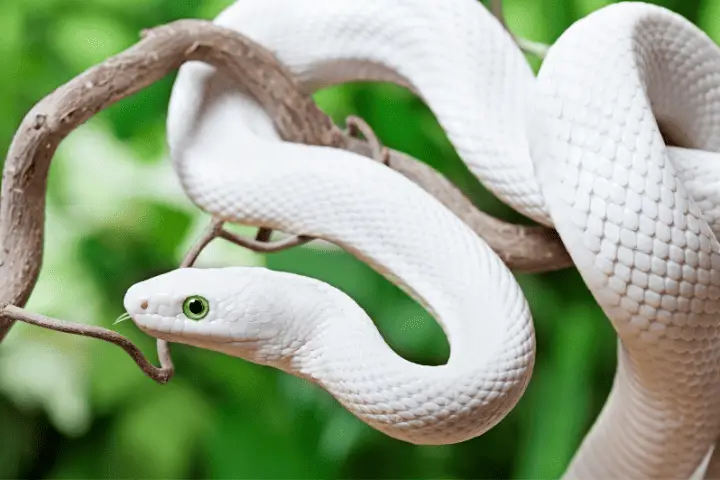Are Texas Rat Snakes Venomous
Texan rat snakes – are they venomous or not?
Texan rat snakes are non-venomous reptiles. They don’t have venom glands like rattlesnakes and copperheads.
So, they’re harmless to humans and animals. But, watch out – their sharp teeth and strong jaws can still cause a painful bite if provoked.
Background on Texas rat snakes
Texas Rat Snakes are captivating! You can find them in the southern US. They have a striking pattern and a slim body, so they are fascinating to reptile lovers.
But, there is still much to uncover about them.
These snakes are very versatile. They can live in woodland areas as well as open fields. They hunt for prey, like small birds and rodents, using their great climbing skills.
This ability lets them track down food in different places, making sure they survive in any situation.
These snakes also play a vital role in sustaining the ecological balance of their habitats. Predators of rodents, they help keep their population controlled and prevent them from damaging crops or spreading sickness.
In other words, these snakes help create a wholesome environment for other species.
If you come across a Texas Rat Snake, don’t try to provoke it or touch it. Even if it’s not venomous, it could become defensive if it feels in danger.
To avoid any conflict with these creatures, keep your outdoor spaces clean and free of food sources that might attract rodents.
Doing this will reduce the possibility of an encounter with a Texas Rat Snake.
Clarifying the misconception about venom
Are Texas Rat Snakes venomous? No! In comparison to Copperheads and Water Moccasins, they have no venom.
A bite from a Texas Rat Snake will only cause mild symptoms such as swelling and redness.
These snakes are also non-aggressive, good climbers, and avoid confrontation. The Herpetology Department at the University of Texas confirms this.
They have done a lot of research to give us a better understanding of the species.
Expert opinions and scientific evidence
Texas Rat Snakes can reach up to 6 feet! With their bright colors and smooth scales, they may look like venomous snakes like copperheads or cottonmouths.
But experts say they don’t pose any real threat.
If provoked or threatened, they may bite. But their bites are harmless and usually don’t cause much harm. These snakes use constriction to take down their prey, like rodents, birds, or other small reptiles.
In the past, these snakes were often feared because they look like venomous species. But now, people know better!
Texas Rat Snakes are not dangerous to humans.
Comparison with venomous snakes
Texas Rat Snakes are often mistaken for venomous snakes due to their similar appearance and behavior. However, they lack the venomous fangs of their counterparts.
Fangs are an integral part in venomous snakes, as they allow them to inject poison into their prey. Texas Rat Snakes, however, must rely solely on constriction to catch their food.
The scales of venomous snakes are usually triangular-shaped with distinct patterns, serving as a warning sign. Comparatively, Texas Rat Snakes have slender bodies and non-triangular heads, without these markings.
Venomous snakes primarily feed on other animals, such as rodents or birds. On the contrary, Texas Rat Snakes eat a variety of things, including small mammals, reptiles, and amphibians.
Both types of snakes play a large role in their ecosystems. Venomous snakes regulate populations by keeping prey numbers in check. As for Texas Rat Snakes, they help to control rodent populations.
Finally, Texas Rat Snakes may not be venomous, but their ability to terrify your mother-in-law is priceless!
Conclusion
It is clear that Texas Rat Snakes do not have venom. They are non-venomous. Their bites won’t harm humans.
They are important for keeping the environment balanced by controlling rodents. They can climb well and live in many places, like forests and grasslands.
Though they don’t have venom, they may act aggressively when scared. This is to protect themselves from predators.

